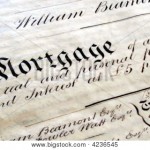 A common question people ask is what happens if they are simply unable to make regular mortgage payments?
A common question people ask is what happens if they are simply unable to make regular mortgage payments?
First off, if you are able to make the payments, by all means do so.
But people who know the end of the rope is near may consider “strategic defaults” — purposely not making payments in order to get the bank’s attention. That it will.
What is unclear is what happens next: the bank’s reaction is completely unpredictable.
I have seen people two years behind in payments and foreclosure papers still have not been filed.
But sometimes it goes the other way: eager banks who begin the process just a month or so after you get behind. But in general, this hasn’t been happening, because of the growing problem of “shadow inventory.”
Shadow inventory, simply put, is bank-owned property that is so stacked up that they are having trouble even marketing it. Banks aren’t really in the real estate business, they are in the money lending business. One more house added to the hundreds or thousands they are trying to sell is not what they are looking for.
Deeds in lieu of foreclosure and short sales come in to the picture at this point, and may be a way to get out of your predicament, but at a price: you may still be responsible for the shortfall in the likely case that your house does not recoup the loan money. You also could possibly be liable to income taxes if a bank “forgives” part of a loan.
Bankruptcy comes in to play if you either wish to avoid paying a deficiency notice after a foreclosure (these Chapter 7 bankruptcy cases are common in the Lawrence area right now), or if you have a second mortgage that is completely under water. In the latter case, the second mortgage can often be stripped with a Chapter 13 bankruptcy filing.
By Doug Beaton